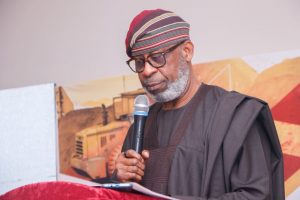Chairman Committee of Pro-Chancellors of Nigerian State-Owned Universities, Senator Mohammed Magoro, has described as unhealthy conflicts in the campus between unions and management/proprietors leading to incessant strike actions.
Magoro also urged both the federal and state governments to stop politicising the issue of fees payment in the Universities.
Speaking at the 5th biennial conference of pro-chancellors Tuesday at Benue State University (BSU) Makurdi, Magoro said it was desirous now for the government to take a look at Academic Staff Union of Universities (ASUU’s) demand and provide a workable solution.
He said the one critical issue to resolving challenges faced by state owned universities, was the issue of funding.
Maj. Gen. Magoro (rtd) urged the state governments to, as a point of duty fund their Universities by ensuring that Budgeting estimates to the institutions were released in time.
He said for the state universities to adequately address challenges they face; there is also the urgent need for upward review of the fees charged by the schools.
“It is a common knowledge that private primary and secondary schools, charge higher fees than most of the state universities.
“We are also aware that the state governments are also saddled with other competing demands of state developments. As such, universities are encouraged to explore ways and means to improve on the internally generated revenue (IGR) and also raise funds through external interventions,” he added.
He further noted that the theme of the 5th biennial conference, “State universities and the challenges of higher education in Nigeria” was being carefully chosen, and its justification premised on the need to focus on the challenges that militate against access, quality and utility of higher education in Nigeria.
“It is my belief that solution to these teething challenges would be found through research, which serves as the bedrock of knowledge that generates new ideas and innovations to improve academic content in curricula of universities and other educational institutions for betterment and uplifting of communities, societies, the nation and humanity in general,” he stated.
Blueprint gives you the latest Nigerian news in one place. Read the news behind the news on burning National issues, Kannywood, Videos and the Military



